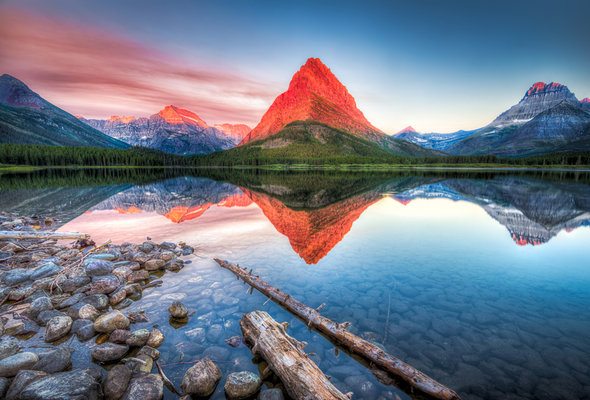Montana is known for its natural beauty. You may have seen scenes shot in Montana if you saw films like “A River Runs Through It” or “The Horse Whisperer.” Broad swathes of the Montana country is not just beautiful, but also empty. The state’s population density is the third lowest in the country, behind Alaska and Wyoming. If that sounds like the perfect escape to you, here are 15 things to know before moving to Montana. Paying for a move entails numerous decisions and calculations, so working with a financial advisor can be helpful.
1. You’ll Want to Enjoy Nature
Montanans tend to be an active bunch. Being an outdoor enthusiast is the norm here. Of course, many Montanans work outside, as ranchers, farmers or in the oil industry. But even those with office jobs jump at the chance to get outside for hiking, camping, fishing, hunting, canoeing and more, all of which the state has to offer.
2. Public Universities Are a Good Option
Montana State University (MSU) and the University of Montana are both well-regarded public institutes of higher education. If you have children or are thinking of going back to school yourself, it’s good to know that the public options in Montana are a solid choice. If you’re moving to Montana for an early retirement, you can also take university classes by obtaining Lifelong Education Status at MSU.
3. Population Density Is Low
Did we mention Montana has a low population density? If you’ve never lived in a sparsely populated state before, you’re in for a surprise. You can drive for long stretches on empty roads or settle down in a home that’s miles from its nearest neighbor. Depending on your preferences, that may sound ideal to you.
4. Skiing, Snowboarding, Hunting and Fishing Are Popular
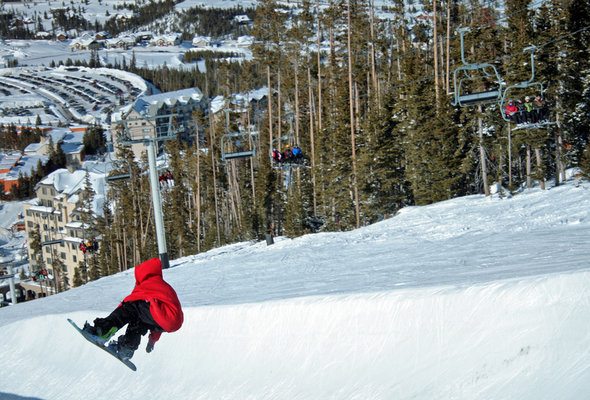
Winter sports are huge in Montana. The state boasts 15 ski areas and resorts, including the famous Big Sky Ski Resort, with 5,800 acres of ski-able land. The active Montana lifestyle doesn’t stop during the winter months. The big divide isn’t between skiers and snowboarders; it’s between those who take part in winter sports and those who don’t.
Hunting and fishing are also popular in Montana, where gun ownership and appreciation of the outdoors are strong cultural values. If you’re considering getting into hunting and fishing, be sure to obtain the proper licenses and store your firearms safely.
5. Winters Are Freezing
Montana winters are extremely cold and feature unpredictable temperature swings. Between November and March, Montana’s temperature swings between 50 degrees above zero and 50 degrees below zero. If you’re moving to Montana, it’s important to dress for the weather and keep a winter survival kit in your car.
6. Ranching Is Alive and Well
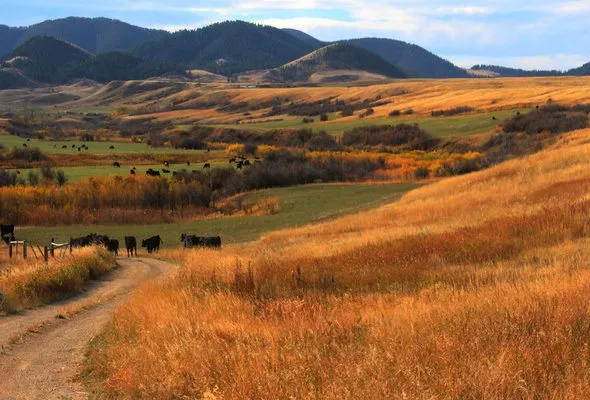
Montana has more cows than people. Agriculture contributes roughly $4 billion to Montana’s economy and livestock makes up about half of that. If you’re moving to Montana in search of the cowboy lifestyle, be aware that ranching is a tough business with slim margins. However, you’ll be in good company if you decide to devote yourself to agriculture. According to the Montana Department of Agriculture, there are 28,008 farms and ranches across Montana.
7. The State Is Moderately Friendly for Retirees
Montana is moderately tax-friendly for retirees. Many retirees pay taxes on Social Security retirement benefits, which are fully exempt in most other states. Likewise, Montana provides very limited exemptions for retirement income from pensions or retirement accounts.
8. You’ll Might Need Four-Wheel Drive
Montana’s tough winters and chewed-up rural roads make a four-wheel drive vehicle more of a necessity than a luxury. You don’t want a car that will slide off the road during a blizzard or get stuck in your driveway when you’re running late for work. Whether you buy or lease, look for a car that can handle Montana’s winters.
9. Housing Is Scarce
It can be tough to find housing in Montana, which is why, if you’re moving to Montana, it’s a good idea to have at least a temporary rental lined up before you go.
In many parts of the state, families and individuals struggle to find affordable housing. For example, according to the Big Sky Chamber of Commerce, about 83% of the workforce of the city commutes into Big Sky every day because they can’t find affordable housing in the city.
10. Wildlife Is Part of Life
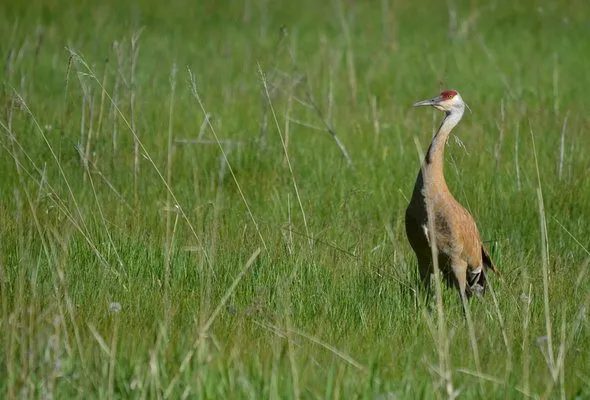
In Montana, run-ins with beautiful creatures like sandhill cranes (or dangerous creatures like rattlesnakes and bears) are par for the course. Managing the deer population is always an issue in Montana, too. If you’re buying a home with a garden, you may need to take steps to protect it from local wildlife.
11. Trends Take Time to Reach Montana
That hot new ingredient the hip restaurants in New York, Chicago or San Francisco are pushing might not trickle over to Montana for a couple of years. The same goes for fashion trends, in part because practical, weather-appropriate clothing is more of a priority for Montanans.
So if you’re used to a lot of the amenities of big-city living and staying on top of trends is important to you, moving to Montana may require an attitude adjustment.
12. Craft Beer Is Popular

Like many Western states, Montana boasts a big craft brewing scene. According to the Montana Brewers Association (MBA), there are 53 licensed breweries in the state. The MBA says that the state’s breweries “employ more than 500 employees and have an economic impact of over $60,000,000 annually.” Home brewing is big, too, and kits are available throughout the state.
13. People Are Friendly
Montanans wave to people they pass on the state’s country roads and chat with strangers in cafes and diners. If you’re moving to Montana from, say, the Northeast, you might be surprised by how warm and friendly the people are.
14. It’s a Good Idea to Be Self-Sufficient
In Montana, particularly in rural areas, you might run into problems like a power outage after a storm or a car battery failure in freezing temperatures, so it’s a good idea to own a generator. It’s important to have basic survival supplies in your home and car (but you don’t have to go full-on doomsday prepper).
But Montanans also rely on their neighbors, so don’t be surprised if you get on a knock on your door asking for help.
15. Montana Has No State Sales Tax
Montana’s tax landscape offers both advantages and potential surprises for newcomers. The most obvious perk is that Montana has no state sales tax, which can make everyday purchases more affordable compared to many other states. However, that savings may be offset in other areas.
Taxes and Financial Planning Considerations
The state’s income tax ranges from 4.7% to 5.9%, depending on your earnings, and applies to most forms of income. Property taxes, while generally lower than the national average, can vary widely depending on location and assessed value. If you’re buying land or a home, it’s wise to research local mill rates before settling on a property.
New residents should also be aware that vehicle registration fees can be higher than expected, particularly for newer or luxury vehicles. These costs are based on the age and type of your vehicle and can add up quickly if you’re registering multiple cars or recreational vehicles.
Whether you’re moving for work, retirement or a lifestyle change, relocating has financial implications beyond housing and employment. From adjusting your tax withholdings to updating your estate plan, careful preparation can help you make the most of Montana’s unique advantages. A financial advisor can help you map out your budget, evaluate tax strategies and ensure a smooth transition to your new life in the Treasure State.
Bottom Line
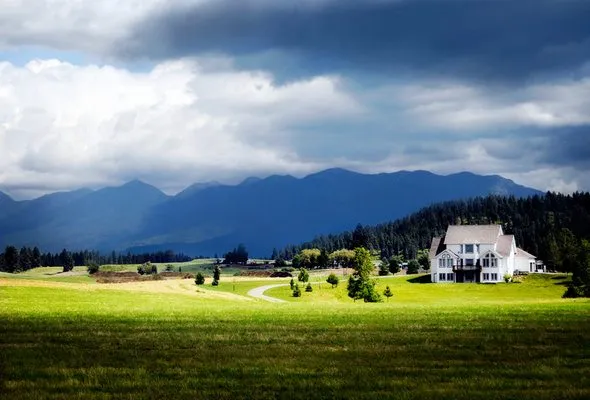
Montana offers vast landscapes, tight-knit communities and a slower pace of life that appeals to many newcomers. But moving here also comes with unique challenges, from harsh winters and limited housing to distinct tax rules and rural infrastructure. Knowing what daily life looks like and what it costs can help you make a confident, informed decision about relocating. If you’re planning a move, a financial advisor can help you evaluate the long-term implications, build a relocation budget and make the most of Montana’s financial advantages.
Tips on Moving to Montana
- A financial advisor can help you navigate big life changes like a move to a new state, or just help you to meet your financial goals in general, like planning for the estate tax. Finding a qualified financial advisor doesn’t have to be hard. SmartAsset’s free tool matches you with financial advisors who serve your area, and you can interview your advisor matches at no cost to decide which one is right for you. If you’re ready to find an advisor who can help you achieve your financial goals, get started now.
- If you’ll be switching jobs, your paycheck may end up looking quite different than it does now. Try using our Montana paycheck calculator to estimate what your new take-home pay will be.
Photo credit: ©iStock.com/Dean_Fikar, ©iStock.com/Colton Stiffler, ©iStock.com/jkauffeld, ©iStock.com/pschoenfelder, ©iStock.com/grubsteaks, ©iStock.com/Mableen
